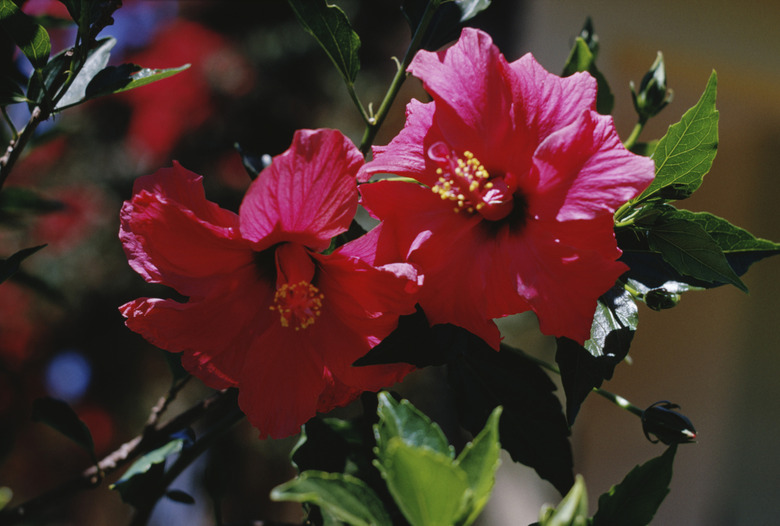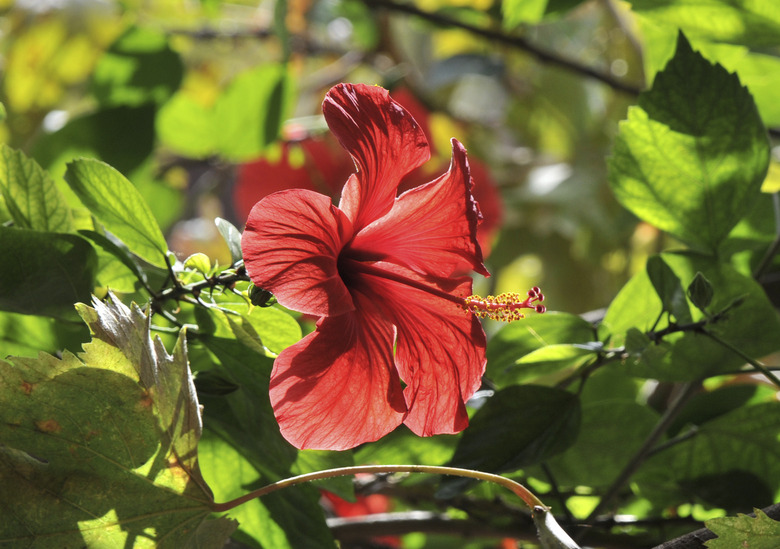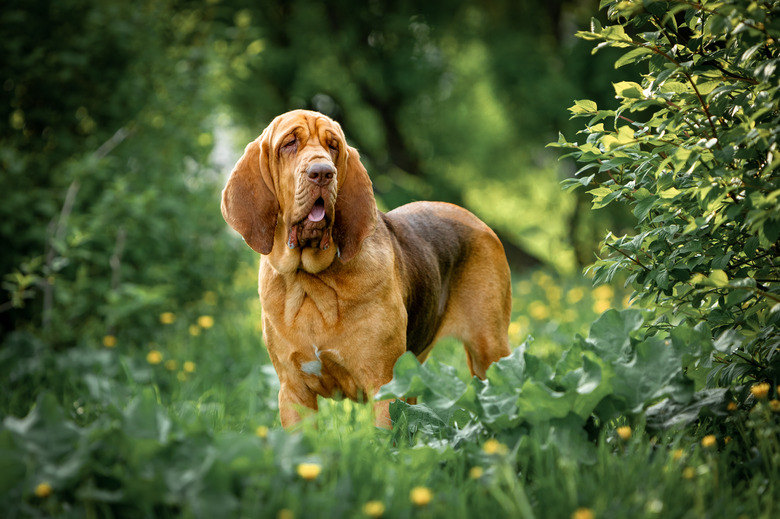Are Hibiscus Poisonous To Dogs?
Are Hibiscus Plants Poisonous to Dogs?
- Are Hibiscus Plants Poisonous to Dogs?
- What is hibiscus?
- Poisonous to dogs?
- Is hibiscus poisonous to cats?
- Hibiscus flowers
- Hibiscus poisoning
- Toxic plants for dogs
- There are many poisonous plants that should be kept away from dogs — so many that you probably wouldn't be able to remember them all. But it is helpful to know that some common plants are harmful to our furry friends. Here are some common plants to be avoided:
Apple, including crabapple
Azalea
Bird of Paradise
Borage
Calla lily
Chrysanthemum
Clematis
English ivy
Foxglove
Heavenly bamboo
Holly
Lemon
Snake plant
Onion
Palm lily
Primrose
Rhubarb
Tulip
Yucca - What to do if your dog eats toxic plants
- The bottom line
Hibiscus is a popular plant for those who live in a warmer environment. And in recent years, the tropical shrub has become more popular in the food world as well. Typically, we'll see the flowers used in tea or added to flavored lemonades. There's even hibiscus ice cream, and department stores or food stores occasionally sell potted hibiscus plants.
If humans can eat it, it might be fair to assume that hibiscus is pet-friendly and is also safe for dogs and cats, but that's not always true. There are hundreds of different hibiscus plants, including herbs, shrubs, and trees. Some types are more poisonous to pets than others, so it's important to proceed with caution and understand the facts.
What is hibiscus?
What is hibiscus?
Hibiscus, which is native to tropical climates, is a popular outdoor shrub in warmer regions and a popular houseplant in regions that experience the full breadth of all four seasons. Their popularity stems from the plant's beautiful flowers, which bloom in varying shades of red, pink, white, and yellow. As such, not every hibiscus is the same. The term is used to describe more than 250 different types of plants that fall in the mallow or Malvaceae family. Most of these are perennials, but some are annuals.
Hibiscus is also renowned for its medicinal properties. You'll often see the species Hibiscus sabdariffa (or roselle) and Hibiscus rosa-sinensis (China rose), but the most popular type of hibiscus is Hibiscus syriacus (the Rose of Sharon). This decorative plant can grow up to 12 feet tall.
Is hibiscus poisonous to dogs?
Is hibiscus poisonous to dogs?
No, hibiscus is not considered poisonous to dogs. According to the ASPCA (American Society for the Prevention of Cruelty to Animals), hibiscus is generally considered non-toxic for dogs and non-toxic for cats, but that information is specific to the Rose of Sharon.
The ASPCA previously had information about hibiscus being dangerous, but it no longer categorizes the plant as dangerous. Also, being "non-toxic" or not largely depends on the type, how much your dog consumes, and your dog's relative size. While they may be safe ingesting a petal, eating a large amount of any plant in the hibiscus genus could be likely to cause problems like gastrointestinal upset.
Is hibiscus poisonous to cats?
Is hibiscus poisonous to cats?
No, hibiscus is not generally poisonous to cats. However, as for dogs, the danger depends on the variety of hibiscus and how much is consumed. Felines are known for climbing on high shelves where houseplants sit and where they are likely to nibble on leaves as part of their exploration and play. Since there are so many different types of hibiscus and some hibiscus aren't pet-friendly, it's best to play it safe. The ASPCA lists Rose of Sharon as non-toxic for cats, but it is safe to treat every hibiscus as poisonous. The quicker you intervene, the less likely your cat will experience severe illness.
Are hibiscus flowers poisonous?
Are hibiscus flowers poisonous?
Hibiscus flowers are not poisonous to humans, but they can be dangerous to dogs and cats if your pet eats enough of them. When you start looking around online, you see that many websites say conflicting things. Some say hibiscus is dangerous to cats but not dangerous for dogs. Some say hibiscus is non-toxic to both dogs and cats. These websites typically are not specifying the type of hibiscus they are referring to. Since it is hard to know for sure, it's best to stop your plants from eating hibiscus plants if you can.
Hibiscus poisoning in dogs
Hibiscus poisoning in dogs
Most hibiscus species are not harmful to animals, but the ones that are toxic can cause serious damage. The main culprit is asparagine, an amino acid found in the plant that leads to gastrointestinal problems and other symptoms when ingested. Other toxic properties have not yet been identified, though they act similarly to asparagine.
Overall, it's important to understand the symptoms of hibiscus poisoning so you can intervene quickly. If treated early, your dog will fully recover in a few days. Dogs who have ingested a toxic hibiscus species may:
- Scratch at their mouth and throat (hibiscus can burn these areas when consumed)
- Vomit, cough, or gag
- Have diarrhea
- Loss of appetite and not drinking water
- Have noticeable swelling and blistering in their mouth or on their tongue
- Experience eye pain and corneal damage (if hibiscus got into the eye)
What to do if your dog eats toxic plants
What to do if your dog eats toxic plants
If your dog ingests hibiscus or other toxic plants, it's better to be safe than sorry. Take your dog to a vet, where they can be evaluated for hibiscus poisoning. Dogs will generally get a full physical exam. Sometimes, a stool sample will be taken to see if the hibiscus has been digested. Other times, a veterinarian may run additional tests like X-rays, ultrasounds, or an endoscopy (to view if there's blistering or swelling in the throat, esophagus, and upper airway).
To treat hibiscus poisoning, veterinarians will generally induce vomiting, give intravenous fluids to flush the kidneys and prevent dehydration, and prescribe medication for blisters and burns. In some cases, your dog may need to stay for observation. Generally, dogs recover in a few days as long as they swiftly receive treatment. In rare cases, hibiscus consumption can cause death.
The bottom line
The bottom line
Hibiscus is not generally considered a toxic plant for dogs or cats, but there are hundreds of different hibiscus plants, so it is difficult to say exactly whether the plant is safe or not. Since eating any parts of the plant can negatively affect pet health, it's best to prevent your dog or cat from ingestion of any species of hibiscus if possible. If you know that your pet has eaten hibiscus or another toxic plant, look for side effects such as drooling, vomiting, gastrointestinal upset, loss of appetite, and swelling around the mouth. Call your local poison control or your veterinarian if you are not sure what your pet ingested.


